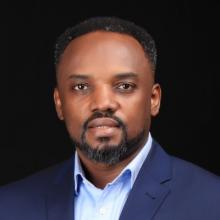You are here
Decolonising global health leadership
May 18,2023 - Last updated at May 18,2023
ABUJA — Gavi, the Vaccine Alliance, has selected an African as its new chief executive officer. The appointment of Muhammad Ali Pate, a professor at Harvard University who is a former Nigerian minister of State for Health and global director for Health, Nutrition, and Population at the World Bank, is a welcome development for the entire Global South, which is woefully underrepresented in global health leadership. But Pate’s selection alone will not correct this imbalance.
Pate’s appointment has been widely lauded. Bill Gates of the Bill & Melinda Gates Foundation tweeted, “I have no doubt he will bring learnings from his impressive career in Nigeria and at the World Bank to ensure children have access to lifesaving vaccines.” Gavi Board Chair José Manuel Barroso, a former European Commission president, echoed this sentiment, noting that he looks forward to “working closely” with Pate to advance vaccine equity.
Barroso is right to highlight the issue of equity. As the COVID-19 pandemic demonstrated, there remain massive disparities in global health-care delivery, with some high-income countries having hoarded lifesaving resources, especially personal protective equipment and vaccines. What the media labelled “vaccine nationalism” was, at its core, lethal selfishness, for which the Global South paid the price.
Gavi, together with the Coalition for Epidemic Preparedness Innovations and the World Health Organisation, attempted to prevent this outcome with the COVID-19 Vaccines Global Access (COVAX) initiative. COVAX was regarded by its creators as the “only truly global solution” to the COVID-19 pandemic, because it was the “only effort to ensure that people in all corners of the world” had access to vaccines, “regardless of their wealth”.
But COVAX fell far short of this ideal, not least because it reflected a colonial mindset. As Ayoade Alakija, Co-Chair of the African Union (AU) Vaccine Delivery Alliance, explained, those behind COVAX “did not come to us Africans, they did not come to ask our leadership, they did not come to ask our people, ‘What would you like?’”
As Alakija implies, leadership matters. While achieving global health goals must be a collective effort, who paves the way can make all the difference. That is why it is not enough simply to include people with a variety of backgrounds and lived experiences in global health initiatives; diverse figures must be given opportunities to lead.
So far, this has rarely happened. Based on a survey of 198 international organisations, the 2020 Global Health 50/50 report concluded that 83 per cent of global health leaders hail from high-income countries, which account for just 17 per cent of the world population. Moreover, 50 per cent of global health leaders are nationals of just two countries: the United States and the United Kingdom. And a whopping 92 per cent of global health leaders obtained their academic degrees in high-income countries, with 8 per cent having attended Harvard. This entrenched pattern is severely hampering progress on health equity, including vaccine equity.
There is no question, then, that the appointment of an African to lead Gavi is a step in the right direction. And Pate appears to be committed to advancing equitable access to vaccines. To that end, one key priority must be to secure a comprehensive waiver of intellectual-property rights on COVID-19 vaccines, as well as therapeutics and diagnostics.
As Harvard Law School’s Bill of Health explains, the World Trade Organisation’s Ministerial Decision on the TRIPS Agreement, adopted in June 2022, produced only a limited waiver, covering patent rights on vaccines and protected clinical trial data for use in issuing regulatory approval. Pate must work closely with fellow Nigerian and WTO Director-General Ngozi Okonjo-Iweala to secure a broad waiver before the next pandemic.
Boosting vaccine equity will also require African leaders to reduce their dependence on donor funding for child-vaccination programs. While poverty rates across Africa are high, so are illicit financial flows away from the continent, with nearly $89 billion lost through illicit capital flight each year. Leaders across the public, private, and nonprofit sectors must block these leakages and allocate the proceeds to advance poverty-reduction and development goals, including health imperatives like vaccination.
A larger role for low- and middle-income countries in decision-making at the World Bank’s new Pandemic Fund is also necessary. The fund was created precisely to help such countries invest in their capacities to prevent, prepare for, and respond to outbreaks of infectious disease. Yet, the Africa CDC, responsible for coordinating disease-prevention and control for the AU’s 55 member states, has not yet been accredited as a so-called Implementing Entity. Surely an agency that oversees the health security of 16 per cent of the global population should able to participate fully in the Pandemic Fund.
Seeing Pate receive this leadership opportunity makes me both proud, as a fellow Nigerian, and hopeful for the future of health in the Global South. But to decolonise the global health sector and achieve genuine health equity, more must be done. How we collectively fare during the next pandemic depends on it.
Ifeanyi M. Nsofor, a senior new voices fellow at the Aspen Institute, is a Senior Atlantic Fellow for Health Equity at George Washington University and an Innovation Fellow at PandemicTech. Copyright: Project Syndicate, 2023. www.project-syndicate.org













